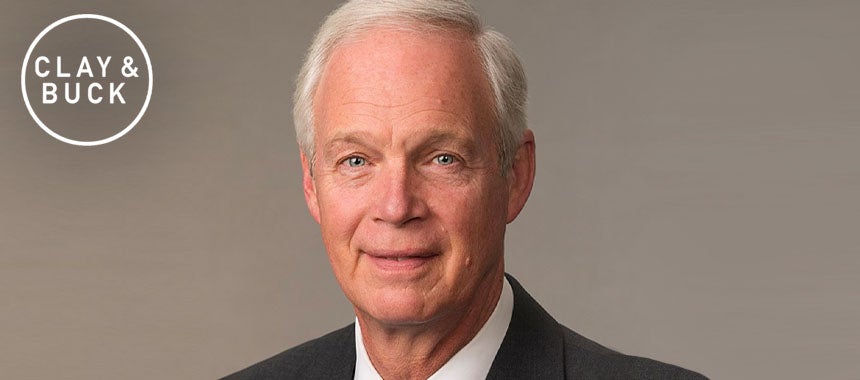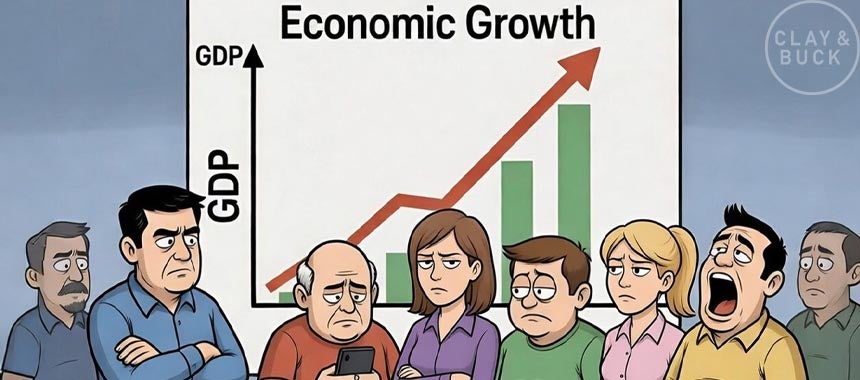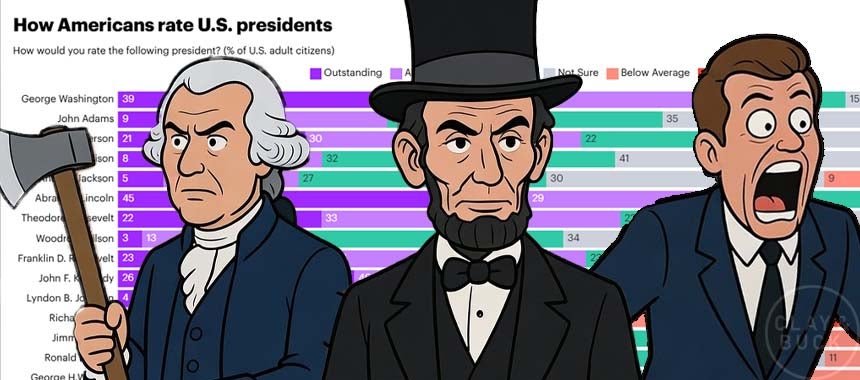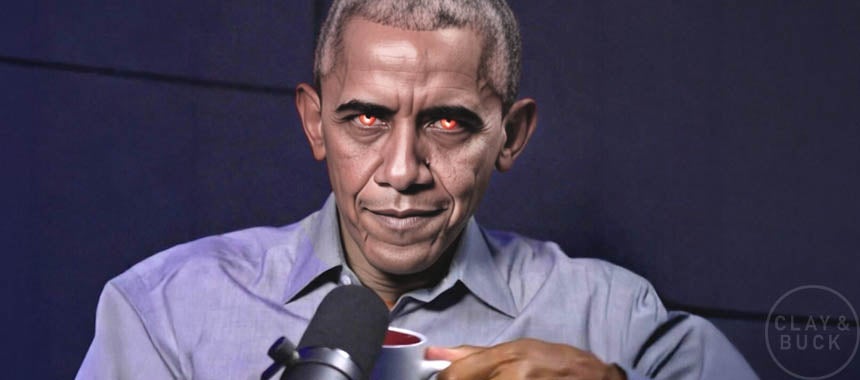Leftists Melt Down Statue of Robert E. Lee
8 Dec 2021
CLAY: Yesterday, Buck and I talked about the 80th anniversary of Pearl Harbor and the fact that from a historical perspective, I don’t believe — and Buck agreed with me — that we spend enough time talking about the heroism of our country in World War II and what we did to combat the Nazis and Imperial Japan and why if we had lost that war, everything would have been different and the United States representing the foundation of freedom.
When you look at what has gone on in this country with the attack on history in general, I’m not sure that there’s a better story right now that epitomizes what’s going on than Charlottesville, Virginia. Charlottesville, Virginia, has a Robert E. Lee statue that had to be there for roughly a hundred years supporting the iconography of the Confederacy, but also Robert E. Lee and his historical relevance for the state of Virginia.
Given the fact that Virginia seceded and that Robert E. Lee, a Virginia native, elected to stay with his home state, as virtually everyone did in the United States during the Civil War. In other words, everybody wants to make the Civil War now a massive battle over slavery. The reality was, you fought for your state almost exclusively.
 If you were a native of Alabama, you ended up fighting for the Confederacy. If you were a native of Minnesota, you ended up fighting for the North. The Union was entirely determined by whether or not you were a citizen of one state or the other. So, Buck, for a lot of these stories, what do they say when they tear down the statues?
If you were a native of Alabama, you ended up fighting for the Confederacy. If you were a native of Minnesota, you ended up fighting for the North. The Union was entirely determined by whether or not you were a citizen of one state or the other. So, Buck, for a lot of these stories, what do they say when they tear down the statues?
They say, “Oh, we’re going to put these in a museum to allow them to have a more proper context so people can see them outside of the public venues, public parks, public streets where they might have otherwise been located.” Except they’ve removed the artifice here in this particular situation in Charlottesville. They are going to take the Robert E. Lee statue; they are gonna give it to an African-American museum.
They are going to melt down the statue and use it — whatever remains of that statue — for some sort of art to be made that is symbolic of social justice. Now, this represents what I think is really at stake, Buck. This isn’t about taking down statues. It’s about destroying. I want to give an example here. I live in Franklin, Tennessee.
Franklin, Tennessee — for those of you who are historians or who are Civil War nerds like I am — is a battlefield. In 1864, North and South fought in Franklin, Tennessee, as one of the final battles of the Civil War. And there is a statue in the town square of a Confederate soldier, which is not uncommon in many different southern jurisdictions.
Instead of taking down that statue, they have decided to add an additional statue that just went up in downtown Franklin right near where I live that has a United States soldier who is black that fought for the Union. He now has a statue right by the courthouse on that town square. My position from a historical perspective is, we should be adding context, adding more understanding of that era, as opposed to trying to tear down and attack the history.
So what do you think, Buck? You’re a New Yorker. You probably haven’t spent that much time thinking about the Civil War in the grand scheme of things. But we just saw in your hometown that Thomas Jefferson statue removed, which is one of the things that Trump was 100% right about, which is it doesn’t stop with Confederate statues and soldiers.
George Washington? Thomas Jefferson? They were slaveholders. Abraham Lincoln even getting torn down. This is about attacking the foundation of American history, not about trying to just focus on one particular subset of our past.
BUCK: It always starts with the Confederate monuments and then it expands beyond there.
CLAY: That’s right.
BUCK: We’ve seen it happen right after the BLM movement came out in June of 2020, and it was, “What about these Confederate statues?” and then they play this game in the media of anyone who defends the placement of a Confederate statue must have some connection mentally, emotionally to the tiki torch losers who showed up for that march in Charlottesville.
And they play this game of, “Well, you must somehow be a sympathizer of theirs.” No, that’s not true. But they also say, as you pointed out, “We’re just gonna move it. We’re just gonna move it to a museum. It’s about the placement of it. It’s about celebration by the state of it,” and to that we always say, “Well, hold on a second. Are you really gonna do that?”
Because the people that are trying to make this case — make the case generally by graffitiing and swinging sledgehammers — they’re not using this eloquence of, “Let’s just change the place.” That’s what the media does to create a more a more persuasive narrative for the general public’s consumption. Meanwhile, the maniacs out on the street are trying to tear down statues and destroy them — and there’s actual value in a lot of these things.

They’re works of art. You mentioned the Jefferson statue here in New York. There’s also the Teddy Roosevelt statue that had been in front of the Museum of Natural History gone now. It’s being loaned, I think, to somewhere in Montana, some institute in Montana. I’m sure a lot of people will see it. The Museum of Natural History in New York gets a lot of foot traffic.
Wherever it is in Montana? I don’t know. I don’t think it’s gonna be quite as prominently on display. But they’re melting down the Lee statue. They’re melting it down. They’re actually officially choosing to destroy this. I mean, this is iconoclasm. This is destroying something and choosing to do so for some kind of a moral purpose, and it’s a reminder of how much incrementalism we see.
They push it a little bit and then push it a little bit more and push a little bit more — and it might seem somewhat reactionary when they start saying, “Oh, let’s pull down this statue. Let’s pull down that statue.” Just always take the position… No. We don’t tear them down. We take the approach you talk about, which is, let’s create more. Let’s create more context.
Let’s create a plaque that actually explains some additional aspects of the history, or let’s put up an additional statue nearby of… You know, there should be more Frederick Douglass statues, right? There should be more public art that celebrates different heroes of our past. That’s great. That’s fine. I’m just picking Frederick Douglass.
There’s many, many others. But the point here being, we give — we cave — on an issue like this and they always turn around and say, “What’s next?” The Columbus statue, for heaven’s sake, in Columbus Circle here in New York, mere blocks from where I’m doing this radio show. I could walk there in five minutes. Clay, they’ve had to have a phalanx of NYPD officers at different times when there’s a lib spasm of anger over our past.
And then there are even statues… I think I got this right. I think it was in New Mexico, there was a statute of Juan de Onate. How many people right now listening to this — I don’t want to hear any typing going on out there — know who Juan de Onate is? I’m not even sure I’m pronouncing the guy’s name correctly.
Someone was shot at one of the fights over the Juan de Onate — he was a conquistador — statue. They’ve defaced Gandhi statues. And you always want to ask, what are you replacing this with? I mean, at what point is it clear that the people who are the most vociferous about these things would turn around and say:
“Gotta tear that Reagan statue down! He was insufficiently dedicated to the rights of transgender individuals to compete in college athletics. Reagan was insufficient on that issue.” I know it sounds crazy, but all this stuff sounds crazy until it’s not.
CLAY: Well, and it’s also incredibly selective. Martin Luther King has a monument in Washington, D.C. Martin Luther King said that homosexuality was a mental illness and that you needed to be treated for being gay. He wrote that. That was not an uncommon opinion in 1950s America, certainly not an uncommon opinion for 1950s America if you were a minister, if you’re a priest, if you’re a reverend.
So the idea selective to decide who meets the standard of the modern era — and look, this is one of the great things about history if you study it. We’re all going to be found lacking in some way. We all think we’re… Even the most social justice conscious person in 2021, in 2120, Buck, they’re gonna have believe things that people in 2120 consider to be absolutely, outlandishly unacceptable.
BREAKING: Trump defense team destroys the Charlottesville fine people hoax pic.twitter.com/GZwDd89Ivv
— Jack Posobiec 🇺🇸 (@JackPosobiec) February 12, 2021
I don’t know what those things are. But that’s what history suggests is that as we evolve, some things that are commonplace in your life become seen as wrongs later on. So this idea, to me, is a perfect metaphor ’cause this is what they want. They want to tear down, they want to destroy, and they want to eviscerate anything that ever would have suggested here.
And this is also significant because this is the allusion, Buck, that Joe Biden used as his argument for why he was running for president. He took the president out of context, didn’t even listen to what he actually said and said the president had called neo-Nazis “very fine people,” when he didn’t. He said there are many — and he’s right — very fine people who don’t agree with tearing down statues of Confederate soldiers.
 BUCK: One thing I do like to point out to not only my conservatives but also the liberal friends that I have ’cause it makes them angry which is always fun when we talk about politics which you should generally avoid with liberals ’cause they just melt down. One thing I like to say is, “If the Republicans are so bad, if Trump specifically is so bad, why they have to lie about him so much?”
BUCK: One thing I do like to point out to not only my conservatives but also the liberal friends that I have ’cause it makes them angry which is always fun when we talk about politics which you should generally avoid with liberals ’cause they just melt down. One thing I like to say is, “If the Republicans are so bad, if Trump specifically is so bad, why they have to lie about him so much?”
CLAY: Yeah.
BUCK: “Why did they have to lie about Charlottesville, what he said about Charlottesville? Why do they have to lie about Russia collusion? If Trump is so bad, why are they always lying about him?”
CLAY: Great question.
BUCK: Oh, they hate that.
Recent Stories

VIP Video: Newsom Compares ICE to Nazis in GERMANY
The Democrats always have nothing but comparing their opponents to Nazis.

Senator Ron Johnson Talks Fiery ICE Hearing, the SAVE Act and Much More
The Wisconsin senator tells us what's behind disastrous Democrat policies the GOP is trying to fix.

More Great Economic Data Comes In, But Will Voters Feel It by November?
Will Americans feel this in their own lives in time for the midterms?







